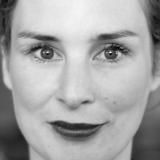In this kick-off we explore how economics is at the basis of incremental systematic change. How do the global financial and economic system, climate change, human consciousness and social security relate to one another? How do these systems interact and most importantly, how can we – without discarding capitalism in its entirety – transform them?


About the speakers
Irene van Staveren is professor of pluralist development economics at the Institute of Social Studies (ISS) of Erasmus University Rotterdam. She is project leader of the online database Indices of Social Development, member of the think tank Sustainable Finance Lab (SFL) and on the board of the student initiative Rethinking Economics NL. In 2015 she published a pluralist economics textbook with Routledge, titled Economics after the Crisis – an introduction to economics from a pluralist and global perspective.
Arnoud Boot is a Dutch economist and professor of Corporate Finance and Financial Markets at the University of Amsterdam. He is a member of the Royal Netherlands Academy of Arts and Sciences since 2008. He currently serves as chairman of the European Finance Association (EFA), and also chairs the Sustainable Finance Lab (SFL), an Utrecht-based initiative that stands for the financial stability and the environmental sustainability of finance. Professor Boot is also council member of the Dutch Scientific Council for Government Policy (WRR) and research fellow at the Center for Economic Policy Research (CEPR) in London.
About the series

Irene van Staveren: Nederland is een van de meest geglobaliseerde landen ter wereld: de optelsom van onze exporten en importen is een stuk hoger dan ons nationale inkomen. De coronacrisis legt het gebrek aan veerkracht bloot van een wereldeconomie die extreem gespecialiseerd is met ellenlange handelsketens waarin China vaak een hoofdrol speelt.

Arnoud Boot en Sweder van Wijnbergen: Ook Nederland heeft de stap naar een Europese aanpak gezet, en terecht. Elk land heeft er belang bij dat de problemen in andere landen beheersbaar blijven. Als we zelfs bij zo’n mondiale crisis niet Europees kunnen optreden, waar hebben we de Europese Unie dan voor?

Economics After the Crisis is an introductory economics textbook, covering key topics in micro and macro economics. However, this book differs from other introductory economics textbooks in the perspective it takes, and it incorporates issues that are presently underserved by existing textbooks on the market.

Towards a new market economy in Europe for future generations.












